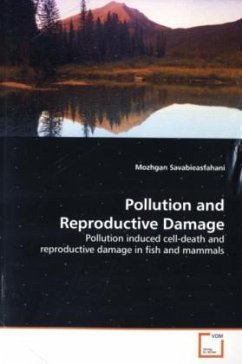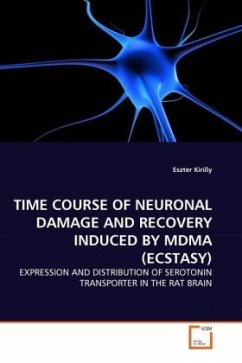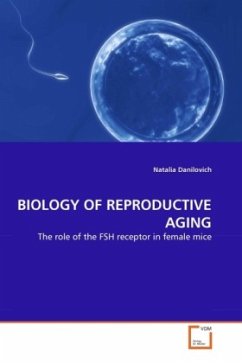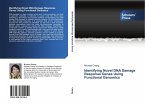Hormonally active compounds (pesticides, herbicides,
bacterial agents, and synthetic hormones) continue to
be released into the environment. These compounds
are widely spread, highly persistent, bioavailable,
and most importantly present at physiologically
relevant concentrations. Many aquatic and
terrestrial populations have exhibited signs of
distress or have been severely impacted because of
exposure to such pollutants. Apoptosis is a
well-conserved hormonally controlled physiological
pathway that is highly sensitive to exposure to
pollutants and xenobiotics. Endocrine active
compounds can cause disturbances in hormonal control
of apoptosis and alter development or maintenance of
reproductive tissue in growing or reproductively
mature individual. These changes can cause reduced
reproductive capacity in the exposed individual. Here
we offer first evidence that petrochemical
contaminants induce apoptosis in highly proliferating
reproductive, hematopoietic, and immune (thymus, bone
marrow, and spleen) tissue of small mammals living on
contaminated sites; we also show that aquatic
pollution effects on reproductive fitness can be
monitored using in vitro cultures of fish eggs.
bacterial agents, and synthetic hormones) continue to
be released into the environment. These compounds
are widely spread, highly persistent, bioavailable,
and most importantly present at physiologically
relevant concentrations. Many aquatic and
terrestrial populations have exhibited signs of
distress or have been severely impacted because of
exposure to such pollutants. Apoptosis is a
well-conserved hormonally controlled physiological
pathway that is highly sensitive to exposure to
pollutants and xenobiotics. Endocrine active
compounds can cause disturbances in hormonal control
of apoptosis and alter development or maintenance of
reproductive tissue in growing or reproductively
mature individual. These changes can cause reduced
reproductive capacity in the exposed individual. Here
we offer first evidence that petrochemical
contaminants induce apoptosis in highly proliferating
reproductive, hematopoietic, and immune (thymus, bone
marrow, and spleen) tissue of small mammals living on
contaminated sites; we also show that aquatic
pollution effects on reproductive fitness can be
monitored using in vitro cultures of fish eggs.








